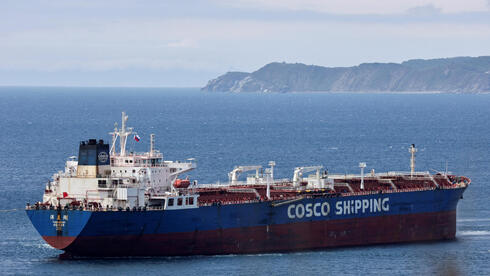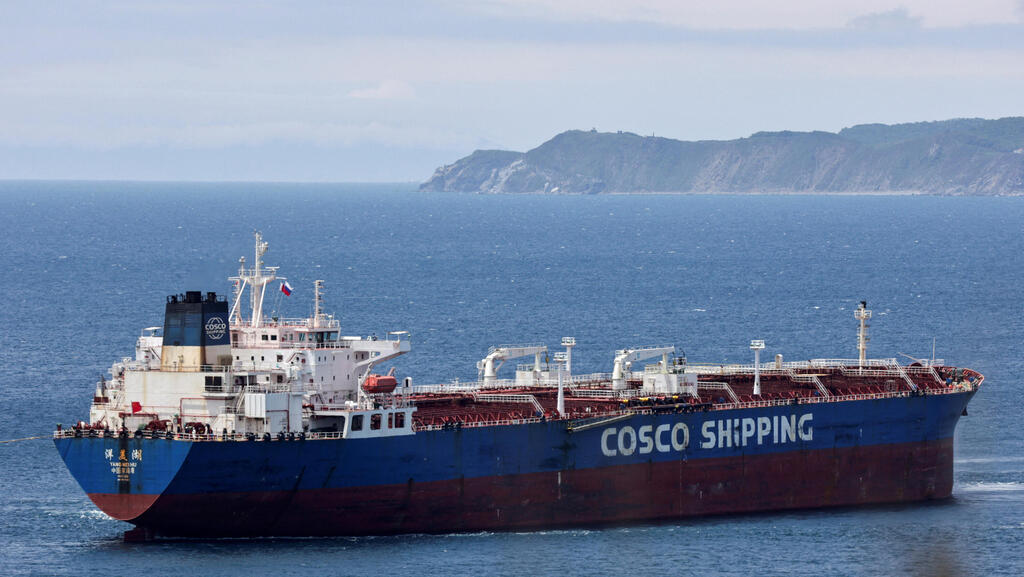
Analysis
COSCO decision not to dock in Israel raises fears of domino effect in shipping industry
The decision of the Chinese shipping giant to suspend its operations in Israel may lead other companies to take a similar step. The shipping industry is divided on whether COSCO’s move is due to the Chinese embrace of Hamas or is a cold business consideration
Chinese shipping giant COSCO's decision to suspend its operations in Israel is not expected to have a material effect on the supply chains to Israel, according to sources in the local shipping industry. However, the main concern of senior officials in the industry is of a possible domino effect which will result in other shipping companies following in the footsteps of the Chinese giant.
COSCO did not explain its decision, which mainly affects the Haifa Bayport, which opened in 2021 and whose operator is the Chinese government company SIPG. COSCO’s official representative in Israel, Carmel Shipping Services, also refused to comment.
COSCO is considered the largest shipping company in Asia and one of the four largest companies in the world.
Like many shipping companies, it was also recently forced to change its sailing routes to the Mediterranean Sea, avoiding entering the Red Sea through the Bab al-Mandab strait following the threat of the Houthi rebels in Yemen to attack any vessel that makes its way towards Israel.
Although it instructed the crews in its fleet to reach the Mediterranean Sea through the Strait of Gibraltar and bypasses the African continent, it intends to end the lines at the port of Piraeus in Greece, which it has owned since 2016 - and no longer sail directly to Israeli seaports. Containers with goods that are destined for Israel and are on board its ships will be unloaded at the port of Piraeus where they will be loaded onto ships of other companies that operate in Israeli seaports in a way that may delay the time it takes for the goods from China and Asia to arrive in Israel.
Senior officials in the shipping industry in Israel were careful not to publicly comment on COSCO’s move. Some said that indications of its unexpected move were received in recent weeks when the shipping giant did not load ships with containers of goods destined for Israel. They linked the company's moves to the complicated political relations between Israel and China and against the backdrop of China's embrace of Hamas, which is accompanied by harsh criticism of Israel's fighting in Gaza and China's position in the UN Security Council, which torpedoed a proposed resolution that spoke of condemning Hamas following the massacre of October 7. This, alongside the warm relations between the Chinese Communist Party and Iran.
The Houthi rebels in Yemen are a "proxy" of Iran, which has armed it with long-range ballistic missiles, coastal missiles, drones of various types and trained its forces with instructors from the Revolutionary Guards and Hezbollah. Against this background, officials in the shipping industry believe that Chinese shipping companies receive some kind of immunity from the attacks of the Houthis in the area of Bab al-Mandab and as proof of this they say that not a single Chinese ship has been attacked in this area since the beginning of the war.
The same sources criticized decisions from recent years that were made in Israel regarding awarding Chinese companies the establishment and operation of essential infrastructure in the country. Other sources in the shipping industry in Israel interpret COSCO's decision as a cold business consideration in the face of the risks it faces as a result of the war in Israel.
Israel is a small and insignificant destination for the Chinese giant, and even though it is the first shipping company to leave the government-owned Haifa port in favor of the Chinese-owned Bayport, the volume of its containers unloaded at its docks is estimated at about 5% of all the containers unloaded there. It has so far operated one supply line to Israel, once a week, and operates additional lines with the Israeli shipping company Zim.
"It is not a rare case that a shipping company decides not to operate in war zones," a senior official in the industry told Calcalist. "There are companies that have made a decision not to visit seaports in Russia and Ukraine. Activity in such areas makes the company's insurance policies more expensive, sometimes doubling and even tripling the wages of the crew members on board the ships, and there are other aspects that make it difficult for the current activity due to the need to deal with a variety of threats, like a naval strike. Just as companies are careful about Russia and Ukraine, COSCO is being cautious about the war in Israel."
COSCO’s move may add to and complicate the supply chains to Israel and affect Zim as well. Zim cooperates with COSCO on some of its transportation lines, and according to estimates by shipping industry officials, it will increase its activity lines to Israel to minimize the damage to the economy.
Zim was the first to change its vessel traffic in the Arabian Sea and the Bab al-Mandab strait following the Houthis' attempts to attack vessels making their way to Israel and has adapted its fleet to the crisis while raising its prices by more than 200%.
Nevertheless, it is estimated that the suspension of COSCO’s operations in Israel will not lead to an unusual wave of price increases in the economy, except for the lengthening of the delivery times of imported products. "Despite the increase in prices, it is evident that the Israeli market is voting with its feet so that more and more companies are requesting to contract with Zim out of a level of confidence that even though the sailing time is getting longer - they have a high level of confidence that the goods will reach their destination," said a senior official in the shipping industry.
Zim is traded on the New York Stock Exchange with a market capitalization of $1.75 billion. On Friday, its stock rose by 7% in a turnover that is four times greater than the average turnover in the last three months. In the last week its stock climbed about 40% and in the last month it completed a jump of 97%.














